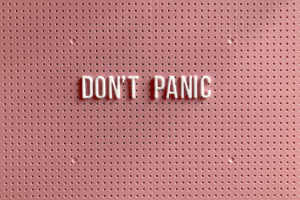Discover the Difference: CDI vs. CDD Employment Contracts in France.
CDI
Looking for job security in France? Consider the CDI (Contrat à Durée Indéterminée), a permanent working contract without a predetermined end date. In other words, it’s the most prevalent type of employment contract. Indeed, a CDI offers unparalleled stability besides peace of mind for employees.
CDD
On the other hand, there’s the CDD (Contrat à Durée Déterminée). As the name suggests, it’s a fixed-term contract designed for temporary work or specific projects. Contrary to the CDI, the CDD has a defined start and end date, and consequently may not provide the same level of job security.
| CDI | CDD | |
| What does each contract represent? | For a permanent position and someone who will be employed for the long run | Usually temporary replacement (maternity leave, holidays etc). To cope with a surge in operations. Sometimes to trial the employee beore offering a CDI. |
| Do I need a written contract? | Yes, for both, written and signed! Never start working before you’ve signed your contract!! | |
| Are the responsibilities and expectations the same? | Usually you’ll complete a probation period and are expected to “perform”pass”. A CDI is a long-term contract that commits both of the employer and the employee. | Most of the time, the level of responsibility will be lower. |
| Is the salary the same? | The salary of a CDI is usually higher. Also, as you’ll stay in the company longer, you may get bonuses and promotions. | You’ll probably be paid less (around 14% less according to French statistics). Most of the time, the bonuses will be lower and pay raises are rare. |
| Can you request one or the other from your employer | The type of contract is in the vast majority of cases is set by the employer and visible in the job ad. | |
| It’s really not commonplace to ask for a CDD when you can have a CDI. | If you have a CDD, you can negotiate with your employer to have him consider switching your contract when it reaches the final weeks. | |
| Is there a trial period? | Most of the time, yes. It can be up to 4 months and renewable for the same amount of time (so 8 months in total).Check our work contract article | Could be, but not always. Max. 1 month. |
| Is it temporary or permanent? | Permanent | Temporary (can only have two CDDs in a row, if you have 3 in a row, the third one can be reconsidered as a CDI) |
| What’s the duration? | Until you retire, if you don’t quit before! | There is no minimum length. The maximum length is 18 months (in general). |
| Are the working conditions the same? | Duration of the workday (35h/week in the general case, not if you’re cadre / maximum 48h a week) Night work (and rest day or over pay) Weekly rest days (usually Sat and Sun) Bank holidays | |
| Holidays | 2.5 days per month | 2.5 days per month but if you don’t take your leave before the end of your CDD, you can be compensated |
| Is there a difference in social protection? | No | |
| What are the perks? | They are the same: Ticket restaurant or a cantine at the workplace Reimbursement of half of the transport fees Employee savings scheme (if there is one) | |
| How can I end my contract? | Resignation Lay off Rupture Conventionnelle | Natural end of the CDD Resignation Lay off |
| For both, make sure to check the length of your notice period. | ||
| Do you get chômage/unemployment benefits? | Resignation = No Lay off = Yes Rupture conventionnelle = Yes | Natural end of the CDD = Yes, if you have worked for at least 6 months (and prime de précarité if you don’t get a CDI after) Resignation = No Lay off = Yes, and you get compensation for the time in your contract you’ll will not finish |
How to choose?
In short, France is often recognised for its workers protections, which include prioritising the well-being of their employees. In addition to minimum standards like maximum working hours, minimum wages, and paid leave entitlements. Nevertheless, workers have employee benefits, job security first as described above in addition to the famous French right to disconnect.
Explore the nuances between these two contract types and make an informed decision about your employment prospects in France. For this reason, choose the option that aligns with your long-term goals as well as aspirations.
Have a look at your plans and goals for the short- and long-term, which working contract and which field of work would best match your ambitions. Then, once you’ve started forming an idea, head over to our article on how to find a job!


